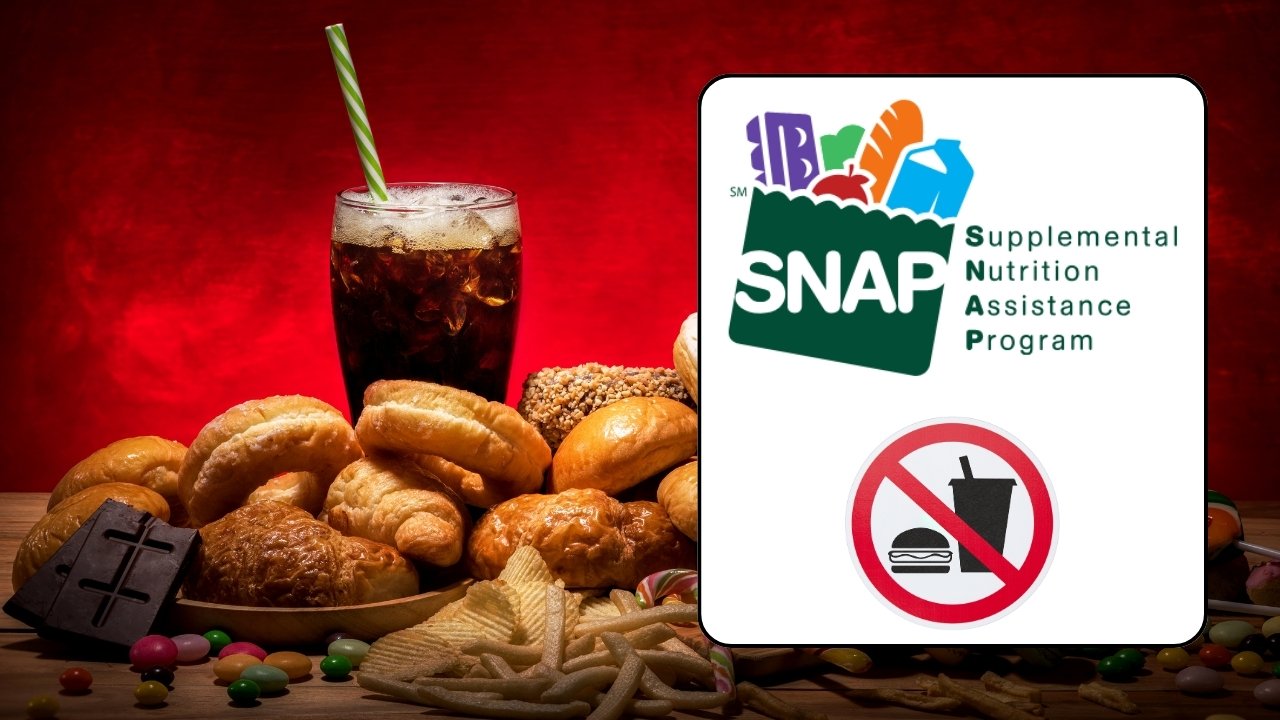Six more states in the U.S. will soon stop allowing certain processed and sugary foods to be bought with food stamp benefits. Health and Human Services Secretary Robert F. Kennedy Jr. announced this new change during a press event held on August 4, 2025, in Washington, D.C. The update is part of a wider push to help Americans live healthier lives by limiting what kinds of food can be bought with federal food assistance.
The new waivers were signed by Agriculture Secretary Brooke Rollins and will go into effect in 2026. These waivers apply to the Supplemental Nutrition Assistance Program (SNAP), which helps low-income individuals and families buy food. With these changes, Texas, Oklahoma, Louisiana, Colorado, Florida, and West Virginia will no longer allow SNAP benefits to be used for certain processed items like soda, candy, and desserts.
Table of Contents
What is the SNAP Program?
SNAP, also known in the past as food stamps, is a federal program that helps people buy food through an electronic benefit card. The program is managed by the USDA’s Food and Nutrition Service and is meant to support low-income families, seniors, and people with disabilities. People who qualify receive benefits on an EBT card that they can use at most grocery stores.
Eligibility for SNAP is based on income, household size, and certain expenses. According to data from 2023, over 42 million people used SNAP each month, which is more than 12.5% of the U.S. population.
States Approved for New SNAP Food Restrictions
During the August event, six states were officially granted permission to change what food items can be bought using SNAP:
| State | What Will Be Restricted |
|---|---|
| Texas | Soda, candy, and other processed snacks |
| Oklahoma | Sugary snacks and drinks |
| Louisiana | Soda and candy |
| Colorado | Select processed foods |
| Florida | Soft drinks, candy, and prepared desserts |
| West Virginia | High-sugar beverages and snacks |
These six join another group of six states approved earlier this year. In 2025, Arkansas, Idaho, Indiana, Iowa, Nebraska, and Utah were granted similar waivers. That brings the total number of states with SNAP food restrictions to 12.
What Foods Are Being Banned?
Each state has different rules, but most of the waivers stop people from buying the following with SNAP benefits:
- Soft drinks and soda
- Candy
- Energy drinks
- Some desserts or sweet baked goods
A few states have made additional rules. For example:
- Florida will also block SNAP from being used on prepared desserts like cakes and pies.
- Iowa will block most “taxable food items,” such as snacks and gum, except seeds and plants used to grow food.
- Arkansas will stop people from buying juice drinks that contain less than 50% real fruit or vegetable juice.
Why Are These Changes Being Made?
The new rules are part of a national health campaign called “Make America Healthy Again.” Officials say they want SNAP to support better nutrition and stop encouraging the purchase of unhealthy foods. Secretary Kennedy said taxpayers should not be funding items that increase rates of diabetes and other chronic diseases. Instead, the focus should be on helping families afford real, nutritious food.
FDA Commissioner Dr. Marty Makary and Agriculture Secretary Rollins both said these changes will help improve public health, especially for children.
When Will the Changes Start?
The new restrictions for the six states announced in August will begin in 2026. The states approved earlier in the year are expected to start enforcing their rules in late 2025 or early 2026.
| Year | States With SNAP Restrictions |
|---|---|
| 2025 (Active) | Arkansas, Idaho, Indiana, Iowa, Nebraska, Utah |
| 2026 (New) | Texas, Oklahoma, Louisiana, Colorado, Florida, West Virginia |
These waivers mark a big shift in how SNAP benefits are used and could lead to similar actions in more states in the future.




